British MPs have tonight after a nine hour long debate for the first time voted in favour of a Brexit withdrawal bill. It happened when the Parliament, House of Commons, voted by 329 votes to 299 – a majority of 30 – to approve the Prime Minister’s Withdrawal Agreement Bill (WAB).
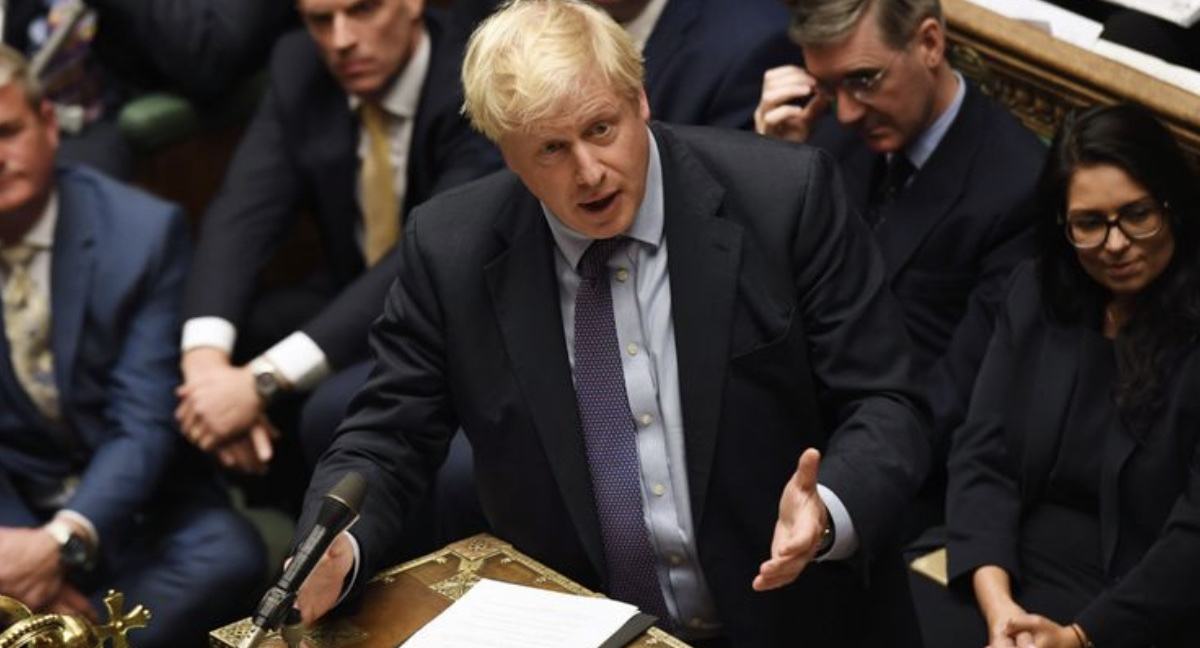
At the same time, just after this historic event, Commons voted down the Prime Minister’s timeplan to get the WAB aporoved in time for UK to leave in nine days on the 31 October.
Boris Johnson, who has delivered on making the EU open the previous Withdrawal Agreement, re-negotiated a deal, removed the backstop and secured a new deal with the EU27 in three months, can add winning Parliament approval for the deal to the list – but will now face difficulties for UK to leave the EU next week.
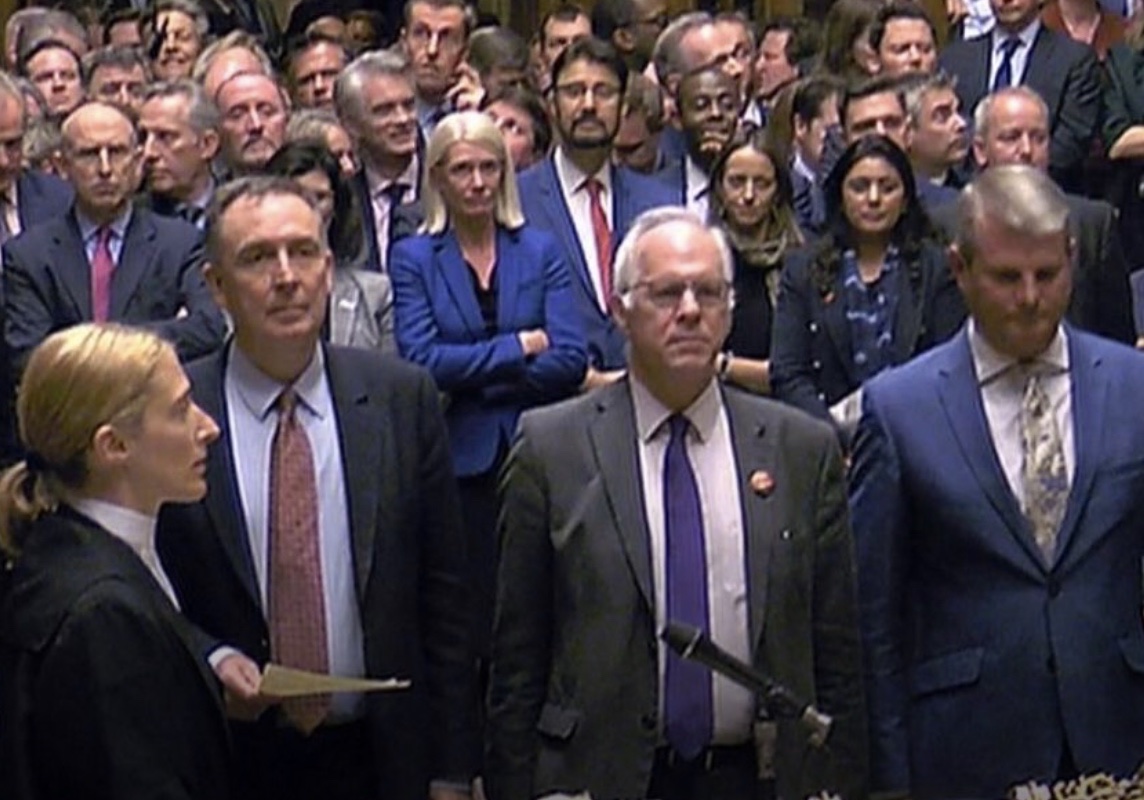
The Prime Minister announced that he will pause the WAB legal process, talk to the EU27 Heads of State and at the same time ramp up No Deal preparations. The Brexit saga continious.
Sources: Sky News, Telegraph
The EU’s Brexit negotiator is widely regarded as having done a good job after maintaining EU unity and striking 2 deals with the UK.
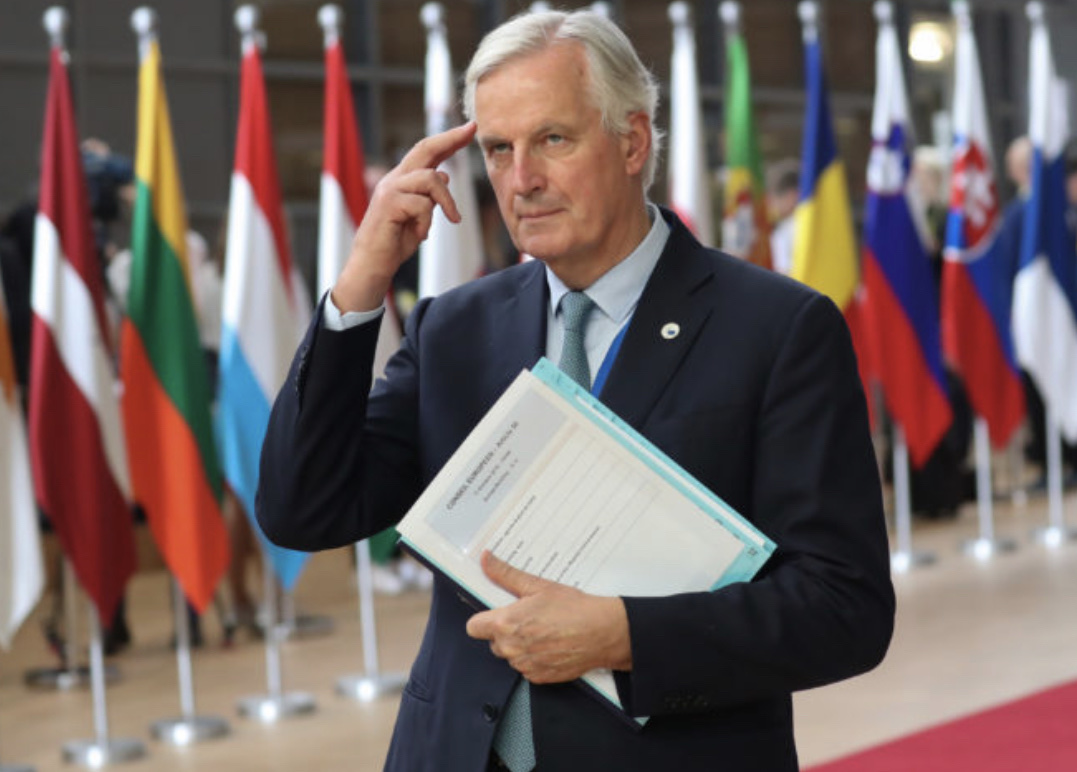
Michel Barnier will lead a “U.K. Task Force” in the next European Commission, effectively continuing his work as EU Brexit negotiator into the next phase of talks on a future trading arrangement, according to a Commission official and an EU27 diplomat.
An official announcement on the new role could come as early as Tuesday, following the weekly College of Commissioners meetings on the margins of the European Parliament plenary session in Strasbourg.
The “U.K. Task Force” label would replace the current “Taskforce on Article 50 negotiations with the United Kingdom” (or Taskforce 50 for short) as a sign that the EU is done with the divorce phase of Brexit and is moving on to the future relationship. That will only be possible if and when the U.K. parliament and the European Parliament ratify the deal reached between London and Brussels last week which was endorsed by EU leaders on Thursday at the European Council.
One Commission official confirmed that the Commission chose the name “U.K. Task Force,” because the acronym for Task Force U.K. (TFUK) sounds like an expletive.
The new group led by Barnier — a former French minister and two-time commissioner — would be effective once the Commission officially starts its work, which is likely to happen on December 1, a month later than expected. One diplomat said the task force would not sit within any one directorate general (notably DG Trade.) Rather it will coordinate the work of several DGs. Since June, Sabine Weyand, a trusted deputy of Barnier’s, has been DG Trade’s director general.
Barnier is widely regarded as having done a good job since 2016 as Brexit negotiator. He has, by and large, maintained the unity of the 27 remaining EU countries and managed to negotiate not one, but two Brexit deals with two different U.K. governments. He had been mooted as a potential candidate for French commissioner after Emmanuel Macron’s nominee, Sylvie Goulard, was rejected by the European Parliament.
If you were given the choice between a two-week vacation in New Zealand and one in Iran, which would you choose?
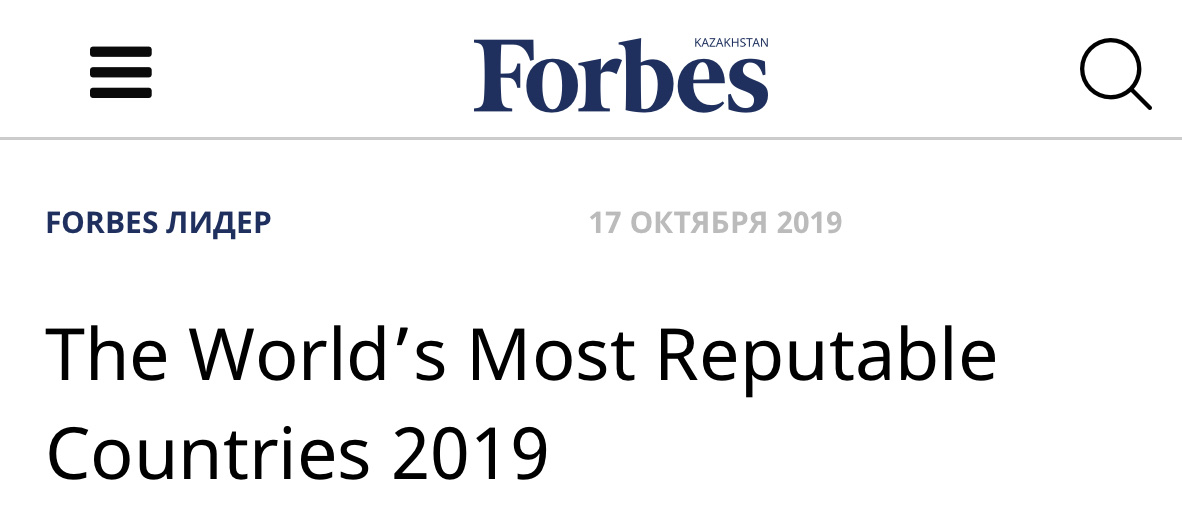
If your choice is the former, there’s a good chance that you’re being influenced by your perception of each country’s reputation. But how does a country’s reputation get made? Events that make front-page news play a big role, as do economic and environmental conditions and so much else. Consciously or unconsciously, people rely on these reputations when deciding where to set up a business, where to live and where to travel on vacation.
“Reputation determines whether people support a country through their behaviors. Good reputation means more exports, more investments, more people coming to visit,” says Nicolas Georges Trad, chief operating officer at the Reputation Institute, a reputation measurement and management services firm. Since 2008, RI has published the Country RepTrak, an annual study of countries’ reputations, based on a survey of citizens of G8 nations.
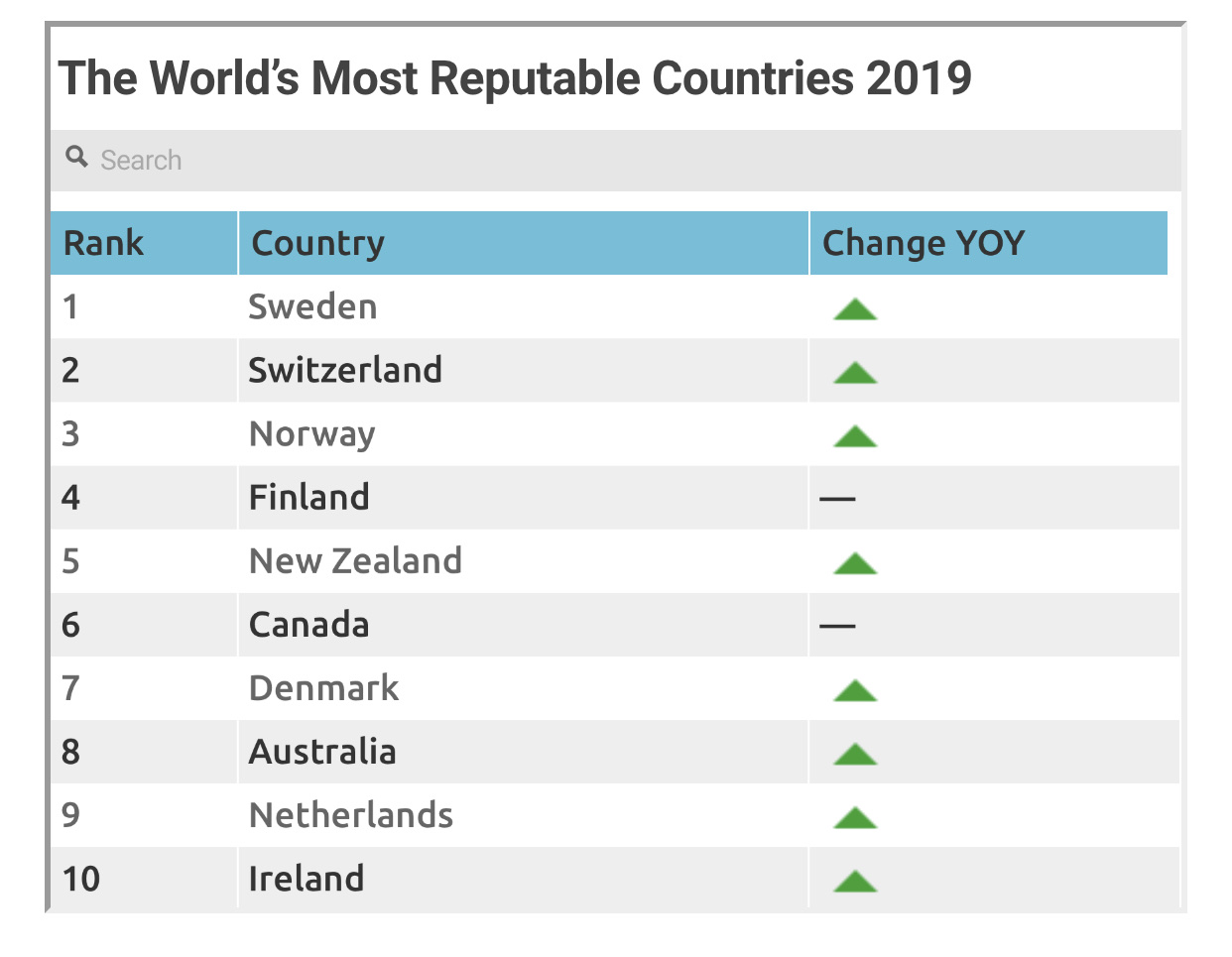
When asked why those particular countries were selected for the survey, Stephen Hahn-Griffiths, chief reputation officer at RI, explained: “It provides a proxy for the opinion of the population of the world,” adding that the survey responses are “driven and weighted by the perceptions of the most important economies.” This year’s ranking revealed an average 0.5-point increase in the reputations of Country RepTrak nations, barely enough to compensate for the average 1-point decline recorded last year.
What should shock no one, however, is that Sweden has claimed the No. 1 spot and appears in that position for the second year in a row. “Even relative to 2018, we’ve seen a significant improvement, and in many ways, [Sweden] has strengthened its position,” Hahn-Griffiths says. “It’s no wonder Sweden is No. 1, because it’s done an incredible job of telling its story.” The narrative to which Hahn-Griffiths wasn’t created by happenstance. Similar to a business strategy, the narrative is a collection of fact sheets and guides called “Sharing Sweden” that were crafted by the Swedish Institute, a government agency whose aim is to shape perceptions of the country overseas. “Sharing Sweden” explores everything from what the nation is doing to improve accessibility for people living with disabilities to how to work or run a business in the country. “Sweden has done well communicating through one team, and that is super difficult to do,” Georges Trad says. “Many countries have challenges with messages being thrown out there.”
To see more about this news and the merhodology used, click here: The World’s Most Reputable Countries 2019
Source: Forbes






You must be logged in to post a comment.